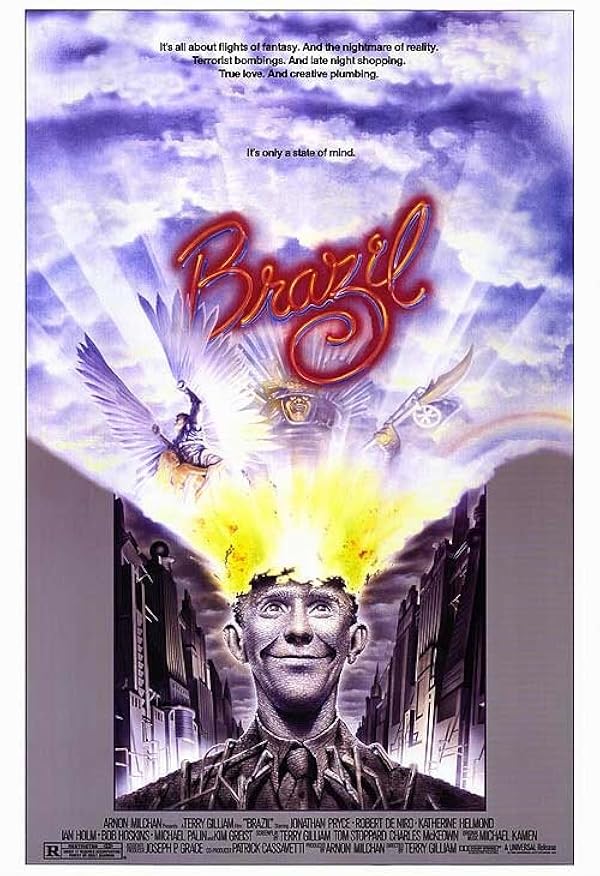Brazil

Where to Watch
Invalid Date
Brazil is a 1985 dystopian science fiction black comedy film directed by Terry Gilliam and written by Gilliam, Charles McKeown, and Tom Stoppard. A co-production between the United Kingdom and the United States, the film stars Jonathan Pryce, Robert De Niro, Katherine Helmond, Ian Holm, Bob Hoskins, Michael Palin, Ian Richardson, Peter Vaughan, and Kim Greist. The film centres on Sam Lowry, a low-ranking bureaucrat trying to find a woman who appears in his dreams while he is working in a mind-numbing job and living in a small flat, set in a dystopian world in which there is an over-reliance on poorly maintained (and rather whimsical) machines and where people found guilty of crimes are liable for the costs of their interrogation by torture. Brazil's satire of technocracy, bureaucracy, hyper-surveillance, corporate statism, and state capitalism is reminiscent of George Orwell's 1949 novel Nineteen Eighty-Four, and it has been called "Kafkaesque" as well as absurdist. Sarah Street's British National Cinema (1997) described the film as a "fantasy/satire on bureaucratic society", and John Scalzi's Rough Guide to Sci-Fi Movies (2005) described it as a "dystopian satire". Jack Mathews, a film critic and the author of The Battle of Brazil (1987), described the film as "satirizing the bureaucratic, largely dysfunctional industrial world that had been driving Gilliam crazy all his life". Despite its title, the film is not about the country Brazil nor does it take place there; it is named after the recurrent theme song, Ary Barroso's "Aquarela do Brasil", known simply as "Brazil" to British audiences, as performed by Geoff Muldaur. Although a success in Europe, the film was unsuccessful in its initial North American release. It has since become a cult film. In 1999, the British Film Institute voted Brazil the 54th greatest British film of all time. In 2017, a poll of 150 actors, directors, writers, producers and critics for Time Out magazine saw it ranked the 24th best British film ever.
Read more on Wikipedia